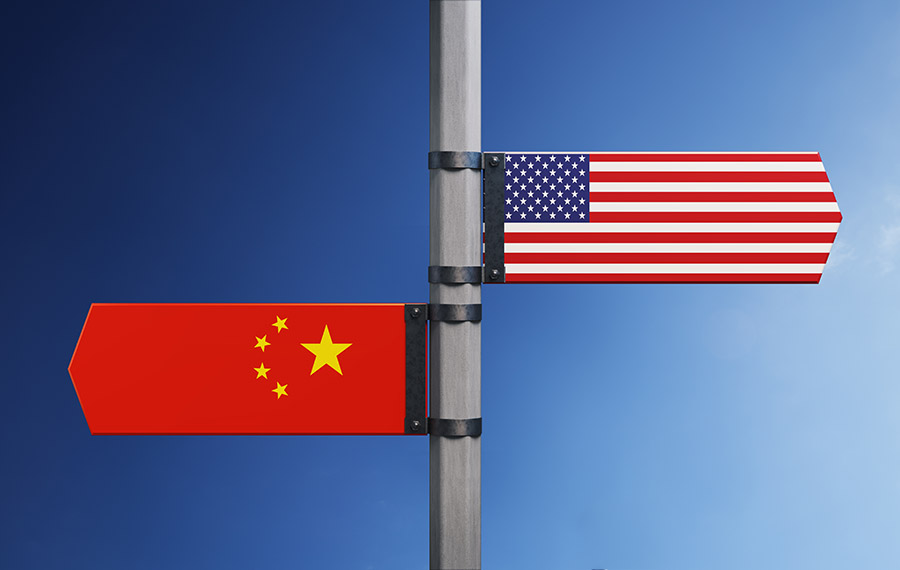Stephen Roach, Senior Fellow, Yale University
Sep 27, 2019
In the here and now of climate change, it is easy to lose sight of important signs of progress. China, the world’s biggest emitter of greenhouse gases, is a case in point. By changing its economic model, shifting its sources of fuel, developing new transportation systems, and embracing eco-friendly urbanization, China’s sustainability strategy is an example of global leadership that the rest of the world should consider very carefully. In the rush to demonize China over trade, the West has missed this point altogether.

Neil Bush, Founder and Chairman, George H. W. Bush Foundation for U.S.-China Relations
Oct 08, 2019
The growing anti-China sentiment in the United States is counterproductive to the trade relationship between the two countries. Americans must understand that this bilateral trade relationship is, in fact, beneficial to both nations.
Andy Mok, Senior Research Fellow, Center for China and Globalization
Sep 03, 2019
The latest round of tariffs against China may be the blow that eventually knocks down an already wobbly American economy.
Stephen Roach, Senior Fellow, Yale University
Aug 29, 2019
This will be the tenth year that I have taught a course at Yale called “The Next China.” The course focuses on modern China’s daunting economic transitions. It frames the moving target that eludes US President Donald Trump’s administration, which is taking dead aim at the Old China (a convenient target for a leader who wants to resurrect Old America). The incoherence of Trump’s trade and economic policies, with all their potentially grave consequences for the global economy, is a destabilizing byproduct of this disconnect.
Fu Ying, Founding Chair of Center for International Security and Strategy, Tsinghua University; China's former Vice Minister of Foreign Affairs
Aug 19, 2019
Communication is about image. The image of a country, similar with those of a corporation or individual, generally includes three dimensions: first, who you are, and what kind of a person you are; second, what you say you are and are like; third, what others say you are and are like. When images of the three dimensions coincide, they would basically result in a complete and objective image. If they are partly missing or diverge too much from one another, the subsequent image may easily be distorted, or unconvincing.

Shen Yamei, Director, Department for American Studies, China Institute of International Studies
Aug 14, 2019
Though many negative beliefs continue to circulate widely within the American media and the American government, Shen Yamei makes clear that these fallacies are unfounded by analyzing relevant literature, key moments in US history and American foreign policy strategy. She argues that, China will not bend to American narratives, and only when the US starts to realize it, can it begin to reverse course and decide to put its China policy back on the right track.
Du Lan, Deputy Director at Asia-Pacific Institute, China Institute of International Studies
Aug 06, 2019
While China-U.S. relations remain moderate, they are also in a critical position to steer away from a full ideological conflict. In order to prevent another cold war, both sides must recall that cooperation is in both parties’ best interests.

Chen Dongxiao, President, Shanghai Institutes for International Studies
Jul 17, 2019
Though their G20 Osaka summit meeting made headlines for its positive signals, President Xi and President Trump still must address three key areas for policy coordination: mitigating the global impact of financial innovation, balancing their scientific and technological cooperation with their respective national security concerns, and addressing the trend towards weaponizing trade and international finance.
Zhang Yun, Professor, School of International Relations, Nanjing University
Jul 05, 2019
Many observers believe the US has already begun a new cold war via comprehensive containment of China. But in recent decades, US elites have debated back and forth on the positive or negative implications of Chinese power. Today’s tensions are serious, but not unprecedented.

Mel Gurtov, Professor Emeritus of Political Science, Portland State University
Jun 12, 2019
Trump’s belligerent style in waging the trade war overlooks China’s history of stiff resistance against stronger foes. The US-China relationship is the world’s most important, and if we don’t get it right, the chances of a violent outcome increase significantly.